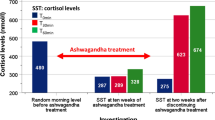Abstract
Behavioral changes in stallion will happen after castration. Usually, behavioral changes are followed by hormonal changes. It seems that removing the testicles has an effect on other endocrine glands including the thyroid gland, hypothalamus, and adrenal glands. Adrenal hormones have an effect on behavior. In this study, cortisol concentration was measured after a surgery in order to determine the relationship between horse’s castration, adrenal gland excretion, and level of stress. Twelve horses were selected for surgical castration. Scrotal incision and closed approach technique were performed for both testicles. Blood was taken before surgery, 10 and 30 days after surgery (castration). Blood glucose was measured by glucose oxidase and then serum and plasma hormones cortisol were measured. Finally, Paired sample t test was performed for statistical analysis using SPSS 16 software (SPSS Inc., Chicago, IL, USA). No significant changes in cortisol were found between the horses before, 10 and 30 days after the surgery (p > 0.05). Significant changes were found only between the samples that were taken before surgery and 30 days after surgery in blood glucose concentration (p < 0.05). There were no significant hormonal changes after castration.
Castration does not seem to affect cortisol secretion; however, its effect on blood glucose concentration was evident.


Similar content being viewed by others
References
Andersen DH, Kennedy HS (1933) The effect of gonadectomy on the adrenal, thyroid, and pituitary glands. J Physiol 79(1):30–32
Edner AH, Nyman GC, Essén-Gustavsson B (2007) Metabolism before, during and after anaesthesia in colic and healthy horses. Acta Vet Scand 49(1):34
Hatai S (1915) The growth of organs in the albino rat as affected by gonadectomy. J Exp Zool 18(1):1–67
Heblod G, Bleuel H (1975) Investigations into the effect of castration on the blood glucose profile of male and female rats treated with glibenclamide (HB 319). Experimentelle Pathologie 10(2):103–105
Wilson JF, Quist CF (1992) Professional liability in equine surgery. In Equine Surgery. W.B. Saunders Company. Philadelphia, PP, pp 13–35
Xia F, Xu X, Zhai H, Meng Y, Zhang H, Du S, Lu Y (2013) Castration-induced testosterone deficiency increases fasting glucose associated with hepatic and extra-hepatic insulin resistance in adult male rats. Reprod Biol Endocrinol 11(1):1
Author information
Authors and Affiliations
Corresponding author
Ethics declarations
This experiment was accomplished under the approval of the state committee on animal ethics, Shiraz University, Shiraz, Iran. The recommendations of European Council Directive (86/609/EC) of November 24, 1986, regarding the standards in the protection of animals used for experimental purposes were also followed.
Ethical approval
All applicable international, national, and institutional guidelines for the care and use of animals were followed.
Funding
The authors would like to thank the research council of Shiraz University and School of Veterinary Medicine, Shiraz University, for financial and technical support of this study (Grant No. 71-GR-VT-5).
Informed consent
Informed consent was obtained from all individual participants included in the study.
Conflict of interest
Saman taravat declares that he has no conflict of interest. Aboutorab Tabatabei-Naeini has received research grants from Shiraz University. Saeed Nazifi declares that he has no conflict of interest. Seyedeh Pantea Rahnama declares that she has no conflict of interest.
Rights and permissions
About this article
Cite this article
Taravat, S., Tabatabei-Naeini, A., Nazifi, S. et al. The effect of castration on cortisol changes and blood glucose in horses. Comp Clin Pathol 26, 617–620 (2017). https://doi.org/10.1007/s00580-017-2431-5
Received:
Accepted:
Published:
Issue Date:
DOI: https://doi.org/10.1007/s00580-017-2431-5




